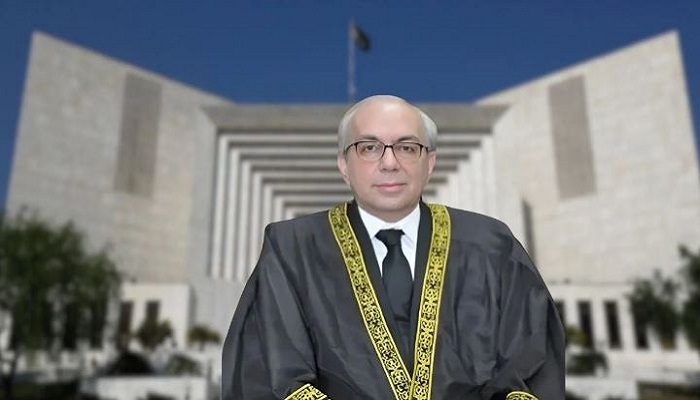ISLAMABAD: Supreme Court (SC) Justice Munib Akhtar has written another letter to the registrar, raising concerns about the legitimacy of the four-member bench hearing the Article 63-A review plea in his absence.
In the letter, Justice Akhtar questioned the legality of the bench, noting that the case was initially set to be heard by a five-member bench but was instead addressed by only four judges.
Justice Akhtar mentioned that he received the written order from Monday’s hearing, signed by the four judges who participated. Although his name appeared in the order, he did not sign it. He emphasized that while the four judges are honorable, the hearing did not comply with legal procedures. He expressed his protest over the written order, asserting that it was not a judicial order and held no legal validity.
Earlier, Justice Akhtar had withdrawn from the bench led by Chief Justice of Pakistan (CJP) Qazi Faez Isa, which was originally composed of five justices, including Akhtar, Aminuddin Khan, Jamal Khan Mandokhail, and Mazhar Alam Khan Miankhel. In a letter explaining his decision, Justice Akhtar cited concerns regarding the reconstitution of the Practicing and Procedure Committee.
Following his withdrawal, the remaining four judges, under CJP Isa’s leadership, proceeded with the hearing.
The case under review stems from a 2022 petition by the Supreme Court Bar Association (SCBA), seeking a reassessment of the Supreme Court’s interpretation of Article 63-A.
The SCBA challenged the court’s earlier opinion, which ruled that the votes of dissenting members should not be counted, arguing that this was against the Constitution’s spirit.
The petition argued that, under Article 63-A, defecting members should only face de-seating rather than having their votes disregarded.
In its May 17, 2022, decision, a five-member bench led by then-Chief Justice Umar Ata Bandial ruled by a 3-2 majority that defecting members’ votes would not be counted in Parliament, asserting that shifting political loyalties undermines the integrity of democracy.
The federal government and the Election Commission of Pakistan are also parties to the case.



















